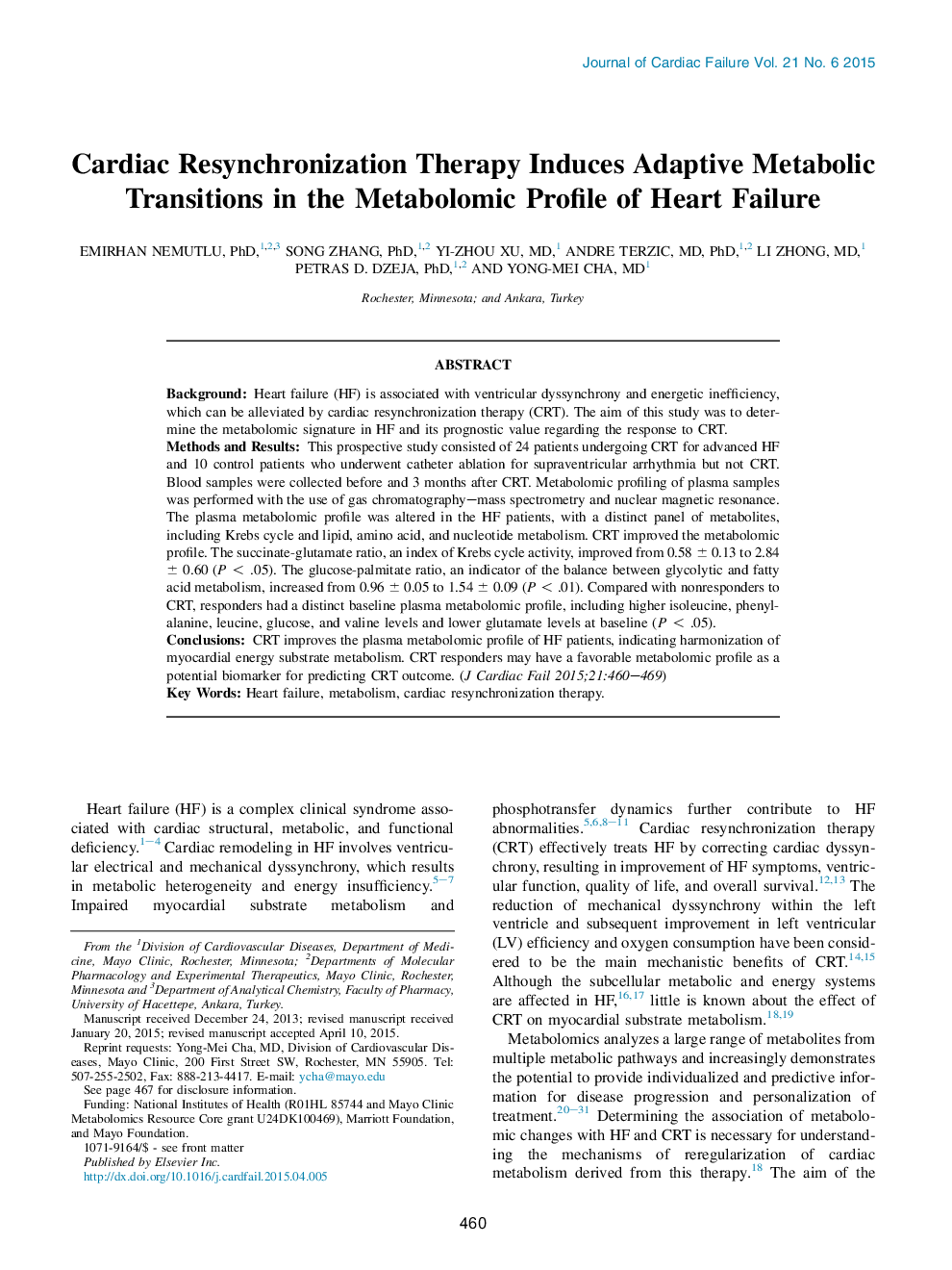| کد مقاله | کد نشریه | سال انتشار | مقاله انگلیسی | نسخه تمام متن |
|---|---|---|---|---|
| 2958893 | 1178301 | 2015 | 10 صفحه PDF | دانلود رایگان |
• The aim of this study was to determine the metabolomic signature in heart failure and its prognostic value for the response to CRT.
• Metabolomic profiling of plasma samples was performed with the use of gas chromatography–mass spectrometry and nuclear magnetic resonance before and after CRT in 24 patients with heart failure.
• CRT improved the metabolomic profile. Compared with nonresponders to CRT, responders had a distinct baseline plasma metabolomic profile.
• CRT improves plasma metabolomic profile of HF patients, indicating harmonization of myocardial energy substrate metabolism. CRT responders may have a favorable metabolic profile as a potential biomarker for predicting CRT outcome.
BackgroundHeart failure (HF) is associated with ventricular dyssynchrony and energetic inefficiency, which can be alleviated by cardiac resynchronization therapy (CRT). The aim of this study was to determine the metabolomic signature in HF and its prognostic value regarding the response to CRT.Methods and ResultsThis prospective study consisted of 24 patients undergoing CRT for advanced HF and 10 control patients who underwent catheter ablation for supraventricular arrhythmia but not CRT. Blood samples were collected before and 3 months after CRT. Metabolomic profiling of plasma samples was performed with the use of gas chromatography–mass spectrometry and nuclear magnetic resonance. The plasma metabolomic profile was altered in the HF patients, with a distinct panel of metabolites, including Krebs cycle and lipid, amino acid, and nucleotide metabolism. CRT improved the metabolomic profile. The succinate-glutamate ratio, an index of Krebs cycle activity, improved from 0.58 ± 0.13 to 2.84 ± 0.60 (P < .05). The glucose-palmitate ratio, an indicator of the balance between glycolytic and fatty acid metabolism, increased from 0.96 ± 0.05 to 1.54 ± 0.09 (P < .01). Compared with nonresponders to CRT, responders had a distinct baseline plasma metabolomic profile, including higher isoleucine, phenylalanine, leucine, glucose, and valine levels and lower glutamate levels at baseline (P < .05).ConclusionsCRT improves the plasma metabolomic profile of HF patients, indicating harmonization of myocardial energy substrate metabolism. CRT responders may have a favorable metabolomic profile as a potential biomarker for predicting CRT outcome.
Journal: Journal of Cardiac Failure - Volume 21, Issue 6, June 2015, Pages 460–469
